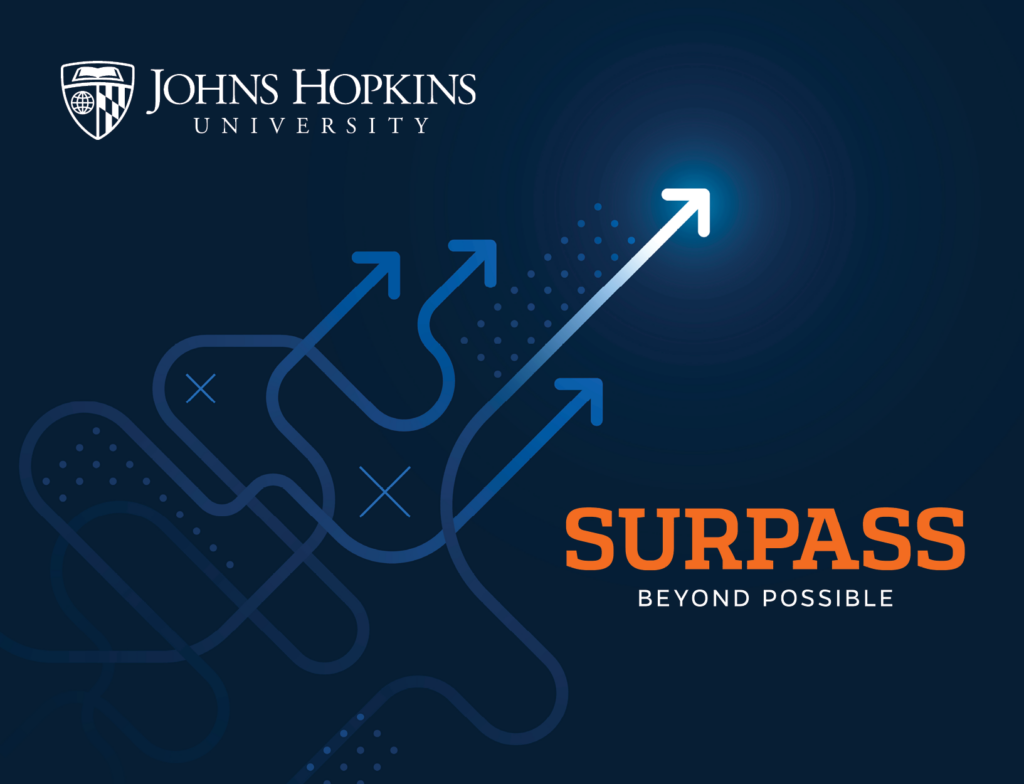Press Release
First SURPASS Teams Set to Tackle Tough Societal Challenges
Imagine being able to detect unhealthy brain activity just by putting on a hat, potentially detecting future incidences of dementia and Alzheimer’s years before onset, or making transportation in the upper stratosphere to and from space as common as domestic and international air travel. These are just two of the revolutionary innovations that teams from the Johns Hopkins University Whiting School of Engineering (WSE) and the Johns Hopkins Applied Physics Laboratory (APL) will tackle with the support from the SURPASS initiative’s first round of funding.
In 2022, WSE and APL created the initiative to enable groundbreaking solutions to ostensibly insurmountable challenges. The initiative is called SURPASS, and the mission is to “go beyond possible” to tackle society’s seemingly impossible challenges.
“Researchers from both divisions of JHU really answered our call, collaborating to submit innovative proposals that have the potential for massive benefits to humanity,” said Ed Schlesinger, Benjamin T. Rome Dean, WSE. “This was a special initiative we created to see what we could do when talent from both divisions combined their skills and resources to tackle our greatest societal challenges. We are excited to see what the future holds with these projects.”
In its inaugural year, the program received 47 white papers. Researchers for the seven papers selected as finalists proceeded to the full proposal stage. SURPASS teams submitted research proposals addressing issues ranging from climate change to curing blindness and cancer to early disease detection, among others. Each proposal is led by two principal investigators (PIs), one from APL and the other from WSE. SURPASS leverages WSE’s and APL’s unique technical strengths and research and development communities, supporting cross-divisional teams dedicated to using innovative, multidisciplinary approaches to solving some of the world’s most pressing problems. The program also pulls in experts from across JHU, including the university’s School of Medicine (SOM) and the Bloomberg School of Public Health (BSPH).
Ultimately, four teams were funded:
BEAST: Between Earth and Space, the Next Strategic Flight Regime; CEREBRO: Enabling the Next Step of Human Evolution; Organoid Intelligence: Synthetic Biological AI; and Photoacoustic Retinal Prosthesis.
“The concepts that these collaborations will explore are combining cutting-edge research from different domains in new and inspired ways,” said APL Director Ralph Semmel. “This innovative partnership really draws on the creativity and curiosity of both APL and WSE, and we are excited to see what these investigations reveal.”
SURPASS program organizers say these proposals have the potential to lead to larger translational efforts with external funding upward of $100 million. WSE is providing funding of approximately $3.75 million to be shared across the four selected projects over an 18-month period.




